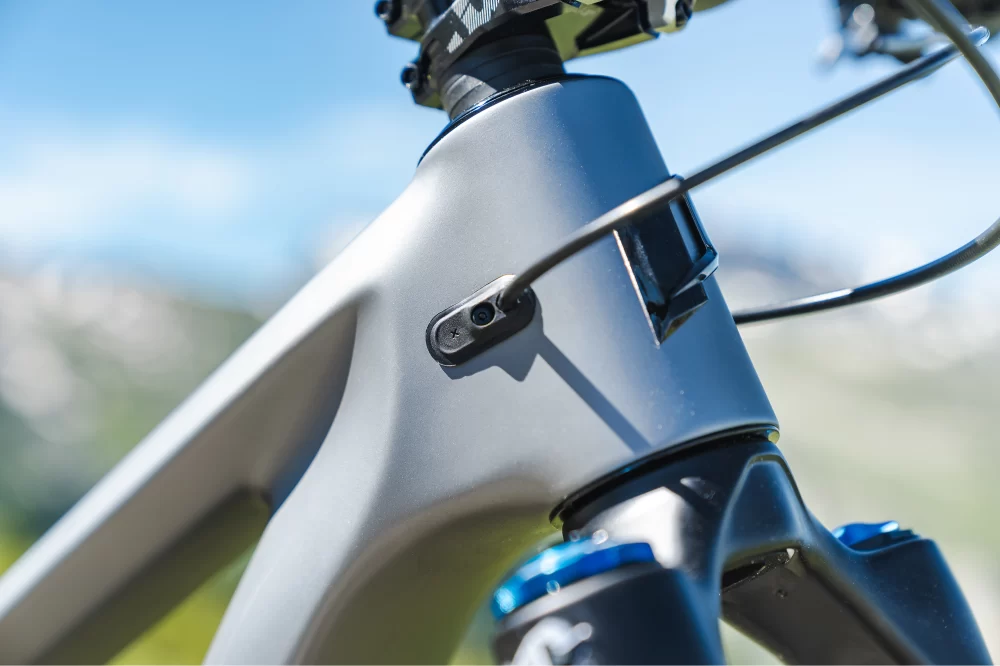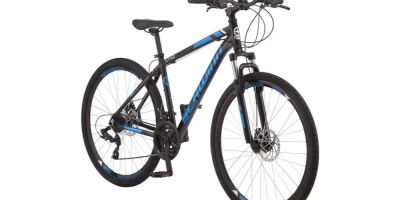
- Benefits-of-Integrated-Frame-Protection
- How-Integrated-Frame-Protection-Works
- Real-World-Examples-and-User-Experiences
- Choosing-the-Right-Mountain-Bike-with-Frame-Protection
- Maintaining-Your-Bike-for-Longevity
1. Benefits of Integrated Frame Protection for Mountain Bikes
When riding on challenging terrains, the last thing any mountain biker wants is damage to their bike’s frame. Mountain bikes with integrated frame protection offer a significant upgrade in durability. Unlike traditional protective accessories that are added after purchase, integrated protection is built directly into the bike’s design, enhancing the structural integrity without adding unnecessary weight.
This integrated approach helps prevent scratches, dents, and cracks caused by rocks, branches, and falls, which are common during off-road rides. For riders, this means less frequent repairs, longer bike life, and peace of mind when tackling tough trails. The added protection also preserves the bike’s resale value, a critical factor for enthusiasts who regularly upgrade their gear.
Another practical advantage is the sleek appearance. Since the protection is part of the frame, it eliminates the bulky look that aftermarket guards or wraps can create. This fusion of functionality and aesthetics appeals to riders who want both performance and style.

Mike's Bikes of Berkeley
1824 University Ave, Berkeley, CA 94703, USA
1.1 Enhanced Rider Confidence and Safety
With integrated frame protection, mountain bikers tend to feel more confident on difficult trails, knowing their equipment is better shielded against impacts. This confidence can translate into better control and more enjoyable rides. Additionally, by minimizing frame damage, the risk of sudden bike failure on the trail decreases, increasing overall rider safety.

Mike's Bikes of Berkeley
1824 University Ave, Berkeley, CA 94703, USA
2. How Integrated Frame Protection Works on Mountain Bikes
The technology behind integrated frame protection varies between manufacturers but generally involves reinforcing vulnerable areas of the frame with durable materials such as carbon fiber, reinforced polymers, or specially engineered metal alloys. These materials are incorporated during the frame construction process rather than applied as an afterthought.
Strategically placed protection zones absorb shocks and abrasions from external impacts. For example, the downtube and chainstays—areas highly susceptible to damage—receive extra reinforcement. Some designs also integrate protective coatings that repel mud and debris, further reducing wear over time.
2.1 Innovations Driving Frame Protection
Recent advances include using nano-coatings that harden the surface against scratches and applying modular inserts that can be replaced if damaged without compromising the frame’s overall integrity. These innovations demonstrate a growing commitment in the cycling industry to blend durability with lightweight performance, essential for competitive mountain biking.
3. Real-World Examples and User Experiences with Protected Frames
Consider the case of Sarah, an avid trail rider from Colorado, who shares her experience with a mountain bike equipped with integrated frame protection. After months of riding through rocky paths and dense forest trails, Sarah’s bike showed minimal signs of wear despite numerous impacts that previously would have left visible dents and scratches.
“I used to worry about every rock or root,” Sarah says. “But with the frame protection, I’ve noticed the bike holds up incredibly well, and it feels sturdier. It’s a game-changer for anyone serious about trail riding.”
Similarly, bike mechanics have noted a decline in frame repairs linked to protected models. One expert pointed out that integrated protection reduces service frequency, helping riders save money and downtime. These real-life testimonies add credibility to the growing popularity of integrated frame protection technology.
4. Choosing the Right Mountain Bike with Integrated Frame Protection
Selecting a mountain bike with integrated frame protection requires attention to your riding style, trail conditions, and budget. Not all integrated protection systems are created equal; some prioritize maximum durability, while others balance protection with weight savings.
When browsing options, look for detailed manufacturer information on frame materials and the scope of protective features. Reviews and feedback from riders can provide practical insights into how well the protection performs in real-world conditions.
For personalized advice and a curated selection of mountain bikes with integrated frame protection, visit Healthy Cycling. Their expertise can help you find a model that fits your needs and ensures a long-lasting, enjoyable riding experience.
4.1 Additional Accessories to Complement Frame Protection
Even with integrated protection, pairing your mountain bike with complementary accessories like reinforced tires, protective grips, and durable pedals can maximize performance and safeguard against other common sources of damage. Combining these upgrades creates a comprehensive defense system for your bike.
5. Maintaining Your Mountain Bike for Longevity
Protection technology alone doesn’t guarantee a lifetime of flawless rides; proper maintenance is essential. Regular cleaning, inspection for cracks or damage, and timely servicing extend the life of both the frame and its integrated protective elements.
Using gentle cleaning methods avoids degrading any protective coatings, while professional tune-ups can catch issues before they escalate. Learning simple maintenance routines empowers riders to keep their mountain bikes in prime condition and fully benefit from integrated frame protection.
For tips, tutorials, and access to trusted bike maintenance products, Healthy Cycling offers comprehensive resources that support riders at every level.










